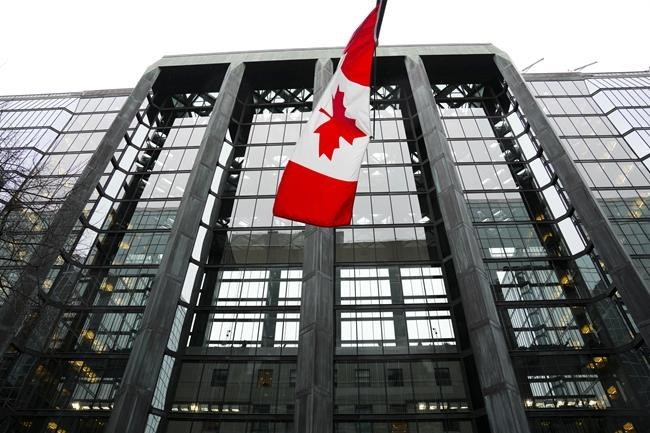TORONTO — The Bank of Canada hiked its key interest rate by a quarter of a percentage point Wednesday, bringing it to 4.5 per cent — the highest it's been since 2007.
The increase marks the eighth consecutive rate hike since the central bank began raising from near-zero in March.
The Bank of Canada said Wednesday that it expects this to be the last rate hike of the cycle.
The rate hikes are intended to reduce stubbornly high inflation, which peaked over the summer and has been steadily declining since, but many economists feel the shock to the economy could lead to a recession.
Here's a look at what the rate means, how analysts are interpreting it and what it could mean for consumers.
What is the key policy rate and what does it do?
The key policy rate, also known as the target for the overnight rate, is how much interest the Bank of Canada wants commercial banks to charge when lending each other money overnight to settle daily balances.
Knowing how much it costs to lend money, or to deposit it with the central bank, helps set the interest rates charged on things like loans and mortgages.
Lowering the rate generally makes borrowing money more affordable, while raising it makes such activities more expensive.
Why is the bank using the rate to target inflation?
Inflation is a measure of how much the prices of goods and services are rising or falling. High inflation is a sign of an economy that's overheating.
Canada's annual inflation rate reached a peak of 8.1 per cent in June, the highest level in four decades.
It has eased since then, reaching 6.8 per cent in November and 6.3 per cent in December. And shoppers have seen even higher price increases for common expenses like groceries. Grocery prices have been rising at the fastest pace in decades and were 11 per cent higher in December than they were a year ago.
Economists and the central bank want to see a further easing of inflation, which is why interest rates have been rising so quickly in the hope of cooling consumer spending patterns.
Inflation has declined from a peak of 8.1 per cent in June to 6.3 per cent in December, reflecting lower gasoline prices and, more recently, moderating prices for durable goods, the central bank said Wednesday,
"Despite this progress, Canadians are still feeling the hardship of high inflation in their essential household expenses, with persistent price increases for food and shelter," the bank said in a statement explaining its decision to raise its key rate. "Short-term inflation expectations remain elevated."
What does this mean for my mortgage?
Mortgage rates tend to increase or decrease in tandem with interest rates.
When Canadians buy homes there are two kinds of mortgages they can select — fixed rate or variable. Fixed-rate mortgages allow borrowers to lock in the interest rate they will pay for a set amount of time, while variable-rate mortgages can fluctuate.
After the Bank of Canada's rate hike on Wednesday, prime rates can be expected to rise to 6.7 per cent and variable rates will be set at about 5.75 per cent and above, said Leah Zlatkin, a mortgage broker with LowestRates.ca.
Assuming their mortgage has a 25-year amortization and they had a 15 per cent down payment, she said a homeowner with a variable mortgage rate of 5.45 per cent on a home priced at $700,000 will have a monthly mortgage payment of around $3,716.
The same mortgage at 5.7 per cent will see monthly mortgage payments increase to about $3,805, a $89 jump per month, she added.
“This will put greater pressure on an already struggling housing market," Zlatkin said in a news release.
"For homeowners in Ontario who are seeing increased property taxes in addition to rate hikes, it’s likely this will be the worst squeeze homeowners have felt yet."
Does this mean interest rates will stop rising?
"We've raised rates rapidly, and now it’s time to pause and assess whether monetary policy is sufficiently restrictive to bring inflation back to the two per cent target," Bank of Canada governor Tiff Macklem said at a news conference Wednesday.
His remarks are making analysts believe the hikes are done, but Macklem has left the door open to future raises, if inflation doesn't budge as much as he'd like.
Sherry Cooper, chief economist with Dominion Lending Centres, interpreted Macklem's remarks to mean that no rate hike is likely on March 8 or April 12, giving prospective homebuyers hope after months of holding off on purchases.
She said, "This may lead many to believe that rates have peaked so buyers might tiptoe back into the housing market."
This report by The Canadian Press was first published Jan. 25, 2022.
Tara Deschamps, The Canadian Press



